Cinema’s Civil War
Hollywood's version is not what those at the time say happened
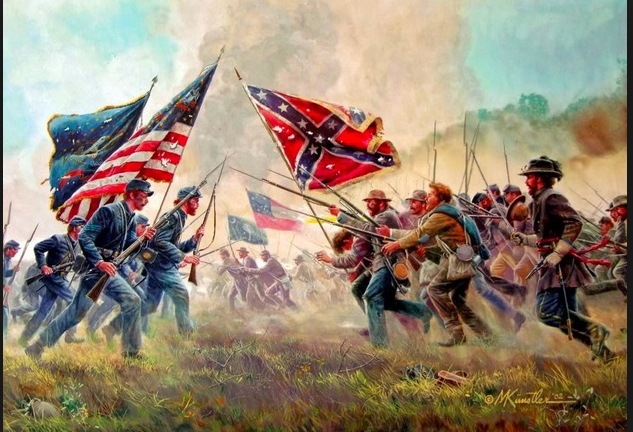
If there is a film genre that has been the source of more fiction and mythology than the western, that category would have to be the American Civil War. I thought about that during the past year or so as various Civil war monuments were torn down by destroyers who believe the vilified versions of Civil War southerners and history as depicted in films.
Those destroyers are little different in their zeal to eradicate all history that offends their religion of politically correct ignorance reflected in film than are the Taliban or Islamic State (IS) terrorists who have destroyed ancient buildings and art works they claim offend their version of Islam. But it really got my attention when University of North Carolina students imitated the Taliban and IS in my hometown of Chapel Hill by tearing down the statue locally known as "Silent Sam."
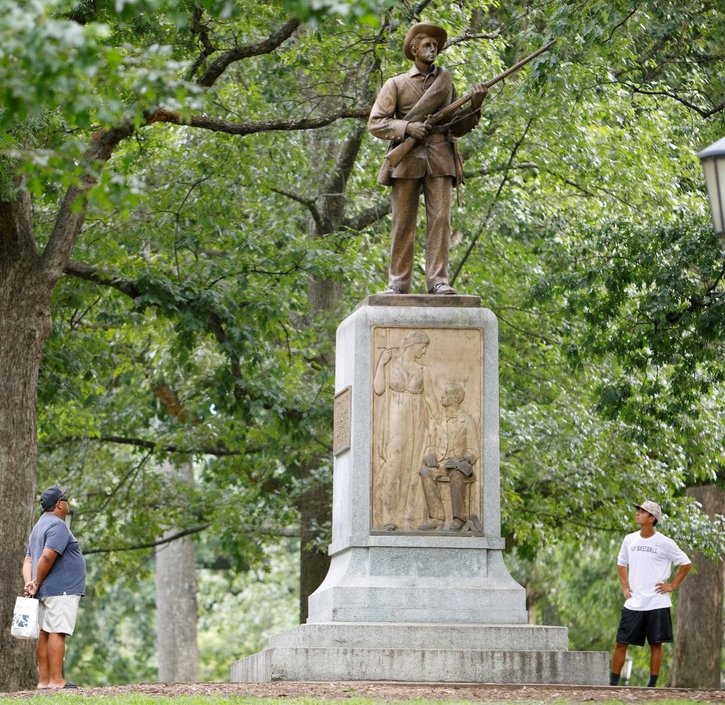
It was erected in 1913 as a memorial to the more than 300 UNC students among the 700,000 who died in what we erroneously call our Civil War. But that intent was soon forgotten after it was said that Sam's rifle would fire whenever a coed virgin walked past.
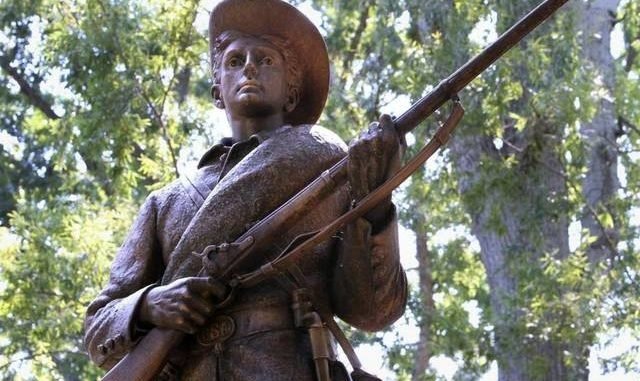
Sam's rifle never fired during the whole time he was on his pedestal that I know of. Setting aside the possibility the statue's destruction was a male student protest against UNC coed virgouts that rejected them, the reason those student Taliban/IS vandals gave for their destruction was that "Silent Sam" offended their social justice religion by countenancing "racists" and slave holders.
Their righteousness has now been compounded by professors who say they will destroy their student's future job prospects by withholding final grades necessary for diplomas if the state of North Carolina puts the statue back up -- which it will since state law requires it do so.
If slave ownership, tolerance of it or comments construed to be "racist" are now the standards for expungement from human history, all Roman history, all Greek history, in fact, almost all world history and artifacts should be eradicated because people throughout human history have owned slaves -- 99.99% of which were the same race as the slave owners. And therein lurks a constructed hypocrisy: The student and professorial anti slavery - racism ire is only directed at white Civil War southerners who owned blacks like the evil slave holder portrayed by Leonardo Dicaprio in Django Unchained.

So while "Silent Sam" the Confederate gets dumped, Union General William Sherman's gold plated statue in New York City is safe from destruction despite his well known sentiments about blacks and slavery in his letters of the time that reflect the opinions of most northerners then but have never made it into films.
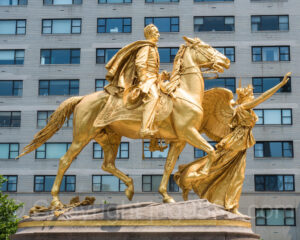
"I know that northern men don't care any more about the rights and humanities of the negroes than the southerners ... Niggers won't work unless they are owned. Theoretical notions of humanity and religion cannot shake the commercial fact that their labor is of great value ... I would not if I could abolish or modify slavery. I don't know that I would materially change the actual political relation of master and slave. Negroes in the great numbers that exist here must of necessity be slaves." Similar omissions also mischaracterize others.
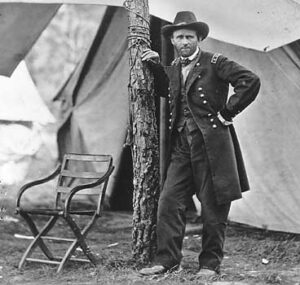
We never see that Union General Ulysses S. Grant, the man supposedly fighting a war to end slavery, used his wife's slave during that entire war or that Confederate General Robert E. Lee, the man supposedly fighting to protect slavery, considered it an evil and sold his slaves after inheriting a number of them.
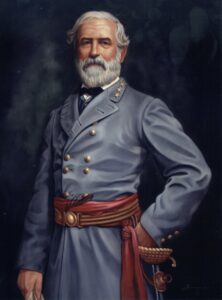
Those are just some of the numerous contradictions of our War of Rebellion, as many then called it, not seen on the screen that have created so many false perceptions of it.
Among other random omissions:
- We never see that more than 500,000 blacks in the South were free, according to Harvard historian Henry Louis Gates, Jr.
- We never see that the first known slave holder was a black man.
- We never see that thousands of free blacks owned slaves according to the 1860 census or that one of the largest slave holders was a black man.
- We never see that the Confederate government was not anti-Semitic given that its Attorney General and acting Secretary of War was Jewish.
- We never see that many Jews fought for the South on the front lines nor do we see any reference to the Confederate Hebrew Cemetery where many are buried.
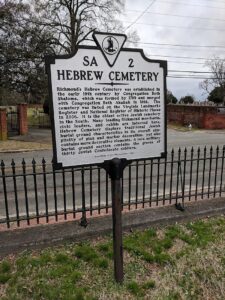
- We never see that northerners (some abolitionists excepted) did not go to war to end slavery.
- We never see depictions of Union General William Sherman emphatically stating that "Slavery is not the Cause but the pretext" for the war before listing what he believed was in his letters. Neither do we see that armed pro Union resistance to the Confederate government by southern whites was rampant in portions of the South.
So how do we reconcile that resistance with all the southern state secession declarations that name the retention of slavery as the sole reason for leaving the United States?
If anyone at that time knew southern motivations, it was Sherman. For years he was superintendent of the school that became Louisiana State University and he understood the South and its people in a way virtually nobody in the the North did.
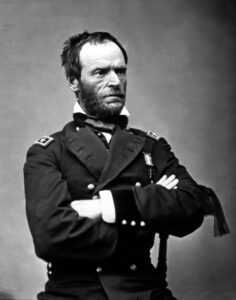
"I am now satisfied that Slavery is not the Cause [of southern secession] but the pretext, and that when these important defections take place, what will be the new Combinations?" Those new combinations, Sherman opined in 1860, would likely split the United States geographically, commercially and politically because it would mean Confederate control of the port of New Orleans and large portions of the Mississippi River.
"Down here they think they are going to have fine times with New Orleans a free port, whereby she can import Goods without limit or duties, and Sell to the up River Countries. But Boston, New York, Philadelphia and Baltimore will never consent that N. Orleans should be a Free Port, and they Subject to Duties ... I think the secession of Mississippi, Louisiana and Arkansas will bring war — for though they now say that Free Trade is their Policy yet it won't be long before steamboats will be taxed and molested all the way down."
As for slavery, the major political contention during Sherman's time was not so much its existence, but the prospect of its expansion into the western territories. Grant did say slavery was the war's cause, but that was after it ended. Before and during the war, this was Grant's view: "I never was an abolitionist, not even what could be called anti-slavery, but it became patent in my mind early in the rebellion that the North and South could never live at peace with each other except as one nation, and that without slavery."
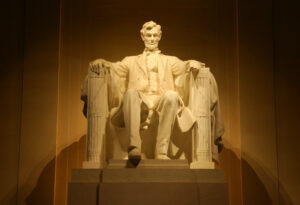
Unlike Sherman and Grant, President Abraham Lincoln was opposed to slavery but not if opposition meant destruction of the Union.
"If I could save the Union without freeing any slave I would do it, and if I could save it by freeing all the slaves I would do it; and if I could save it by freeing some and leaving others alone I would also do that. What I do about slavery, and the colored race, I do because I believe it helps to save the Union."
Lincoln's true view about that colored race has not made it onto movie screens.
"I am not, nor ever have been, in favor of bringing about in any way the social and political equality of the white and black races … I am not nor ever have been in favor of making voters or jurors of Negroes, nor of qualifying them to hold office, nor to intermarry with white people; and I will say in addition to this that there is a physical difference between the white and black races which I believe will forever forbid the two races from living together on terms of social and political equality. And inasmuch as they cannot so live, while they do remain together there must be a position of superior and inferior, and I as much as any other man am in favor of having the superior position assigned to the white race."
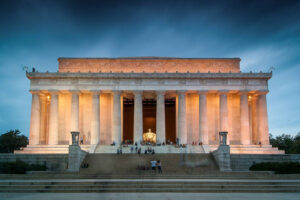
That's as racist as it gets by today's standards. Yet there have been no moves to destroy the many monuments to Lincoln or, for that matter, those to Generals Sherman or Grant or other prominent northerners on record with the same views. The net result of those and many other omissions like the extreme importance of the Irish immigrant soldiers to both sides is that most Americans are largely ignorant of the complexities and contradictions and outright hypocrisies that school boys of my background generally knew about their ancestors, their war and its issues that still underlie much of our contemporary political contention.
One big reason we knew was that we got to talk to people who were raised by those who actually fought in the Civil War or lived through it. That was the case in my family. My father's parents were on opposite sides of the Civil War and they would re-fight it over dinner almost every day. Grandad had several brothers who fought for the North. Grandad was a strong Union Republican because to him, secession was treason.
My grandmother didn't agree. Her father, older brothers and cousins had fought with Texas cavalry units. What I learned from her was that slavery was basically a non issue for most southerners since most did not own slaves. Their issue was a belief that the federal government had reneged on guarantees of personal and state constitutional rights based on the integrity of the Presbyterian polity they were founded on. That sentiment was expressed in "The Bonnie Blue Flag" lyrics of the time that roused southerners:

"As long as the Union was faithful to her trust Like friends and brethren, kind were we, and just But now, when Northern treachery attempts our rights to mar We hoist on high the Bonnie Blue Flag that bears a single star."
Neither was slavery a compelling war reason for the likes of Sherman, Grant or even Abraham Lincoln, as noted, no matter what they said late in the war or after it that contradicted their earlier public and privately expressed opinions about "Negroes" being a lower order of human being with whom whites could never tolerate as equals. That nuance is absent from the screen as are other relevant facts in Civil War films.
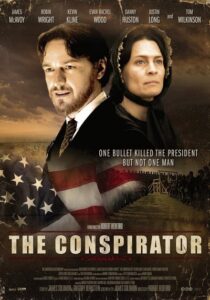
The Conspirator shows the tooth and nail legal defense by Union Army hero Frederick Aiken of accused Lincoln assassination conspirator Mary Surratt before a US Army kangaroo court. So we have the drama of Surratt, a backer of the Confederacy and abettor of the conspiracy to murder Abraham Lincoln, being defended by a former Union soldier of principle who's upset that Surratt's constitutional rights are being violated. What's missing is the fact that Lincoln had rescinded the very constitutional rights Aiken complains are being trashed by the military court, for one, and the fact that before joining the Union army, Aiken had written to Confederate president Jefferson Davis offering to serve with the South, for another.
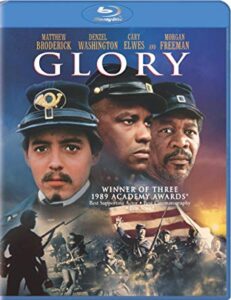
Glory shows us the first all black regiment formed by the Union — the 54th Massachusetts Volunteer Infantry — and seems to imply that only the North was evolved enough to allow blacks into its army. In reality, they were cannon fodder for suicidal attacks like the 54th's on Confederate Fort Wagner. Contrast that northern segregation with the South's integration recounted in this eyewitness account in Harper's of the Confederate army as it marched through Frederick, Maryland on its way to Gettysburg.
"Over 3,000 Negroes must be included in the number … They had arms, rifles, muskets, sabers, bowie-knives, dirks, etc. They were supplied, in many instances, with knapsacks, haversacks, canteens, etc., and they were manifestly an integral portion of the Southern Confederacy army."
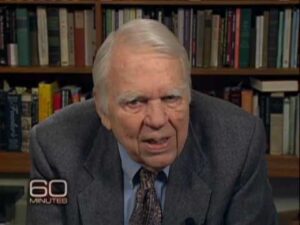
CBS 60 Minutes curmudgeon Andy Rooney fumed that textbooks saying blacks fought for the South were a spreading a lie. Sorry Andy. Frederick Douglass, the famous social reformer and abolitionist confirmed otherwise in his Douglass Monthly newspaper of September 1861:
"It is now pretty well established, that there are at the present moment many colored men in the Confederate army doing duty not only as cooks, servants and laborers, but as real soldiers, having muskets on their shoulders, and bullets in their pockets, ready to shoot down loyal troops, and do all that soldiers may to destroy the Federal Government and build up that of the traitors and rebels. There were such soldiers at Manassas, and they are probably there still. There is a Negro in the army as well as in the fence, and our Government is likely to find it out before the war comes to an end that the Negroes are numerous in the rebel army."
Era newspapers contain accounts of captured fully armed black soldiers, black snipers and a History Channel piece correctly recounts how soldiers at Camp Douglas, the Union's hellish POW prison near Chicago —immediately shot black confederate soldiers on their arrival.
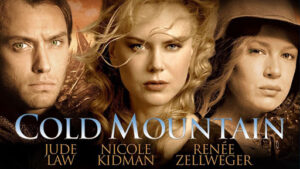
Cold Mountain shows us a sadistic western North Carolina Confederate home militia guard commanded by a Captain Teague that murders a fiddler boy after forcing him to play. It's a true story I heard along with most everyone else while a child living in the mountains. Far as it went, the film still does not show what a bunch of murderers Teague's home guard actually was. Bad as they were, however, Teague's Confederate goons were no worse than the pro-Unionists they were fighting. By 1863 the Federals controlled East Tennessee and the Confederates Western North Carolina, so there was a lot of cross-border raiding by partisans like Champ Ferguson (Confederate) and Col. George Kirk (Union). Both men were utterly ruthless. What no film has shown is that the Appalachian population was part of the other South that was ambivalent or outright hostile to the Confederacy. In that respect, the war years there were not unlike the Missouri border war Bushwaker – Jayhawker bloodlettings shown in The Outlaw Jose Wales and Ride with the Devil.
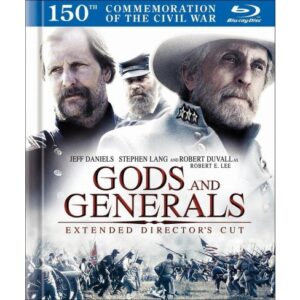
Gods and Generals presents another issue of inauthenticity. Confederate soldiers are almost always shown dressed in fitting, gray uniforms. Compare that with the eye witness description of southern troops below it.
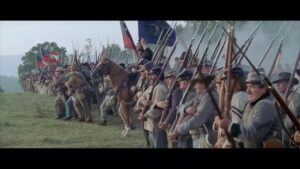
"I have never seen a mass of such filthy strong-smelling men. Three in a room would make it unbearable, and when marching in column along the street the smell from them was most offensive… The filth that pervades them is most remarkable… They have no uniforms, but are all well armed and equipped … They are the roughest looking set of creatures I ever saw." Another observer described the Confederates as "a lean and hungry set of wolves." The Civil War or any other historical period can be interpreted any way a director wants, but that interpretation tends to reflect current sensibilities. Past interpretations like those in Gone With The Wind presented a ridiculous southern fiction of chivalry, whimsical lost cause and the off-putting sight of "darkies" singin' in da cotton fields. We're now at the opposite end of that spectrum within a framework of what Indiana University history professor David Thelen defined as a "story of bitter irreconcilable conflict between two societies and between two sets of values" — some of which we are still arguing about with no resolution in sight.
-----
Dan Gifford is a national Emmy-winning, Oscar-nominated film producer and former reporter for CNN, The MacNeil Lehrer News Hour and ABC News.
###